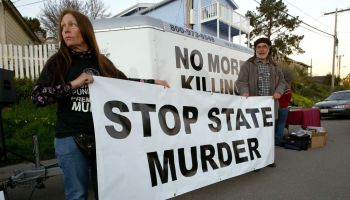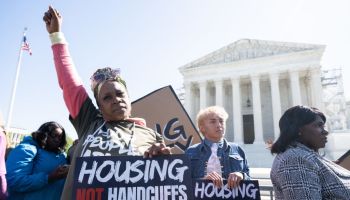NewsOne traveled with the Rev. Al Sharpton and his partners last week on a four-city tour to kick off a national movement to redevelop the broken relationship between the Black community and the schools that serve them.
The three-member coalition includes Sharpton’s National Action Network, the National Network of State Teachers of the Year, and the University of Phoenix. They held town hall meetings and met with community stakeholders in Atlanta, Georgia; Richmond, Virginia; Baltimore, Maryland; and Columbia, South Carolina, from June 13 to 16.
At each stop, the partners shared their vision for closing the academic achievement gap, which remains wide between Black and White students. Their mission is to inspire action through strategic planning that’s unique to each location.
“The National Action Network’s long-standing commitment to an equal, high quality education for all children is rooted in the belief that our system works best when educators, parents, and community leaders come together,” said Sharpton, president and founder of NAN.
The organizations announced their partnership and vision, “Saving Tomorrow, Today: Redeveloping Our Community Schools,” at the NAN convention in April.
“This groundbreaking partnership is exactly the kind of collaboration that will lift our community schools, improve outcomes, and help us set students on the path to success,” Sharpton stated.
Five objectives are at the heart of the movement. The agenda includes building a strong alliance of parents, teachers, and communities. They also want to make sure teachers have the tools and training they need to succeed.
At the same time, the groups say the schools must present multicultural curriculum that Black students can relate to. The partners also believe there’s an urgency to bring more teachers of color into classrooms and to increase teacher salaries.
“Reestablishing and strengthening the relationship between communities, parents, and schools, coupled with greater professional training for our educators, are this initiative’s biggest goals,” explained Byron Jones, CFO at the University of Phoenix.
The four cities face unique challenges that are, at the same time, similar. They include closing the academic achievement gap, ending unequal school funding, and shutting down the school-to-prison pipeline.
Churches that hosted the town hall meetings are forming working committees — comprised of community volunteers — that will formulate strategies to address the challenges in their city.
The idea is to create a blueprint that could guide communities across the nation on their own journey.
At each town hall meeting Sharpton told community members that change will come from the bottom-up. “Everybody can do something,” he underscored.
The minister reminisced about the challenges of growing up in poverty. He recalled his single mother lighting a candle for him to do his homework when the utility company turned off their electricity.
She looked over his shoulder to make sure he completed his algebra assignment — even though she didn’t understand what he was doing. And she always showed up to parent-teacher conferences.
Many in the audience responded with an “amen” because they had similar experiences.
“Parental involvement in school was one of the keys to our success as a community,” Sharpton said. “We were not told that we’re disadvantaged. There was an expectation that we would succeed.”
Katherine Bassett, NNSTOY CEO, said the coalition will “strive to change the system from the inside out, so parents, students, educators, and the community become one.”
Four State Teachers of the Year from her organization, each of them African-American, shared their insights at the town hall meetings about the challenges they faced as educators and the solutions they discovered.
The National Association of Black School Educators will lend its expertise and support in each community as well.
“Our mission in these communities, alongside NAN, NNSTOY, and University of Phoenix, is to strengthen the skills of teachers, principals, specialists, superintendents, and school board members to ensure high standards and quality in these education systems,” said Marietta English, NABSE president.
Over the next few weeks, the working groups in the four cities will take shape and begin laying the groundwork for a community-based education movement.
PHOTO CREDIT: Getty
SEE ALSO:
What Action Will You Take To Improve Education In Your Community?















